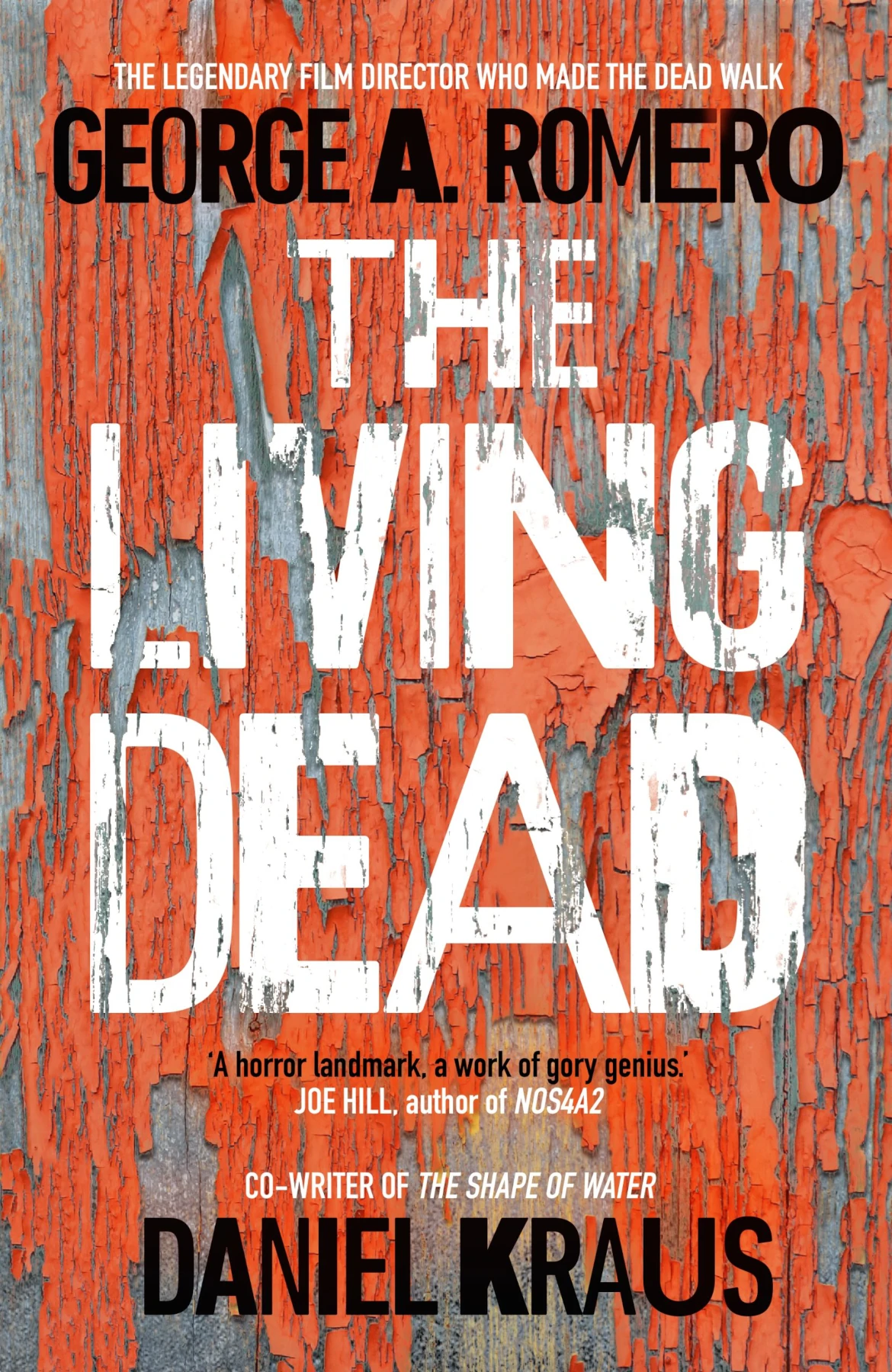
An Interview with Daniel Kraus
Words By Daniel Kraus, Interviewed by Dominic Loise
Your book tours for both the hardcover and paperback releases of The Living Dead have been affected by Covid. What’s it like promoting this all-encompassing book of George Romero’s zombie apocalypse in the midst of a global pandemic?
George had the worst luck with movie releases! The copyright mistake of Night of the Living Dead, the bizarre way Season of the Witch and The Crazies were promoted, and, of course, the perennial curse of being so ahead of his time! For example, Diary of the Dead felt flat to some people when it came out and now looks like a goddamn crystal ball. So it seems par for the course that the book would run across roadblocks too. It’s hard to get too down about it. It’s a gift that the book exists at all and there are more serious things to worry about. The book has done well regardless and people will continue to find it over the years—and I bet they’ll think it must have been written after COVID-19. That’s George’s genius.
Growing up on horror films, what was your first “aha moment” that Romero’s movies were actually saying more about the society we live in than the dead?
Ben’s death at the end of Night of the Living Dead. It was unlike anything I’d ever seen as a kid. The protagonist, who did everything right, gets killed? And not heroically but in a cruel, offhand way? It made me think about what kind of person would end their movie that way. And that led to thinking about authorship in art. When you’re a kid, art is just art, born of nothing. I started thinking early on that this “George A. Romero” was up to something. He killed Ben for a reason. And then Dawn of the Dead, it all exploded when I saw that. Dawn taught me what a metaphor was.
A moment I found very informative during the hardcover virtual tour was when Suzanne, his widow, mentioned that George wasn’t a fan of the internet and he foresaw people splintering into like-minded tribes because of it. What was something you wish to share which you learned about George Romero, the man not the filmmaker, going through his archives and talking with his family for this project?
A big chunk of The Living Dead comes from a previous attempt at writing a zombie novel that George made around 2000 on his personal website. He was idealistic about the web at that point; he saw it as a way to slough off the bullshit of Hollywood and bring his movies directly to his fans. It spoke to his indie roots. But the forums on his site got ugly quick and he became disenchanted. He recognized instantly the dark side of the web’s open spaces—it can be a field of wonder but also a gladiator arena. He thought tech would kill us. And I think, looking at Facebook and Twitter, you could argue it’s well on its way, a slow death by division.
In your own writing you have middle grade books with Trollhunters and the They Threw Us Away series; teen books with Rotters and Scowler; and general adult books like The Shape of Water. What is it like writing horror for readers at different maturity levels?
It feels instinctive; I have a good recollection of how I felt reading at different ages. Simply as a mechanical thing, working on projects that are vastly different in voice—and age ranges necessitate that—make each project a perfect palate cleanser for the next. Exercising all the muscle groups make for a stronger overall writer in general.
Recently, you had a comic book series come out from Vault. Tell us about The Autumnal and how horror comics are having a new Golden Age.
I don’t know enough about comics to know if that’s true. I’m a real newcomer—I didn’t grow up with comics and wasn’t a regular reader until the concept of The Autumnal came to me. It’s possible that having no sense of what had been done before gave me a somewhat liberating perspective. Now, of course, the dam has broken. I’m catching up on the last half-decade of comics and it’s a wild experience.
What is the George A Romero Project and how can people support it?
The George A. Romero Foundation—the GARF, for short—is rapidly becoming one of the most important horror organizations in the country. They were pivotal with The Living Dead, they got Romero’s lost masterpiece The Amusement Park re-released, and they’re bringing to light what a wide-ranging artist George was—not the solely horror-focused guy he was made out to be. More importantly, they’re using the George A. Romero Collection as a base from which to build a support network for new voices in horror. I’m thrilled to be a part of it and that’s not PR-speak. It feels like a calling.
Thank you for your time and work, Daniel. Any upcoming projects we should know about?
By my count, I have eight projects that haven’t been announced yet, some of which are finished and some of which are just getting started. There will be a steady stream of announcements starting shortly.